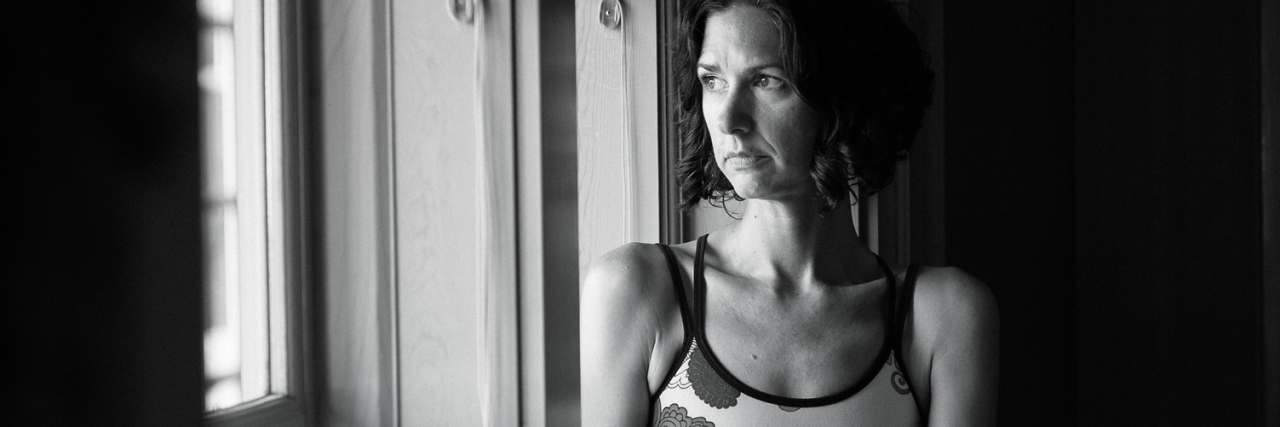Why I Didn’t Believe My Auditory Hallucinations Were Schizoaffective Disorder
I was diagnosed with schizoaffective disorder at 54 years old, but I didn’t believe it for four years. In the meantime, I found myself getting tangled in a web of deceit.
I felt certain that my auditory hallucinations were real. I thought I just had exceptionally good hearing because people would sometimes say to me, “I can’t believe you heard that.” The fact I already had exceptional hearing fed my belief that everything I heard, especially the voices, was real.
I was paranoid that people were watching my every move because that is what the voices told me. I just knew that wicked people were broadcasting to me on a frequency only I could hear. I would get frustrated when other people couldn’t hear the things I did.
The voices would tell me I couldn’t say anything about them, or they would hurt my daughter. Since I was already paranoid, I believed them. This meant I had to make up lies to protect the voices, to protect myself and my daughter.
My biggest lie was that I was fine. I wasn’t fine by any stretch of the imagination. I had a hard time sleeping, which made my symptoms worse. Just as I would start to doze off, the voices started telling me I better not sleep, or they would hurt my daughter. When I tried to sleep, they always started a conversation that I felt I had to hear. It was an exhausting hallucination.
I was staying with my sister for a while, and the voices would threaten to hurt her, too, if I said anything. They said there were cameras in the house, and would comment on what I was wearing or doing. I felt bad that they could see my sister, and we had no privacy — but I couldn’t tell her or she would make me go back to the psychiatric hospital.
I could hear the voices better downstairs, which was another thing that made me think the voices were real. They would discuss placing the cameras and getting them out of my sister’s house before I found them and had proof of their existence.
I pulled down the smoke alarms to look for cameras. I started unscrewing all the faceplates from the light switches, and the voices would tell me I disabled their cameras. But then they would say something so I knew they could still see me, and I put all the screws back.
They had repeaters that drove me “crazy” — one of them just said “Jesus Christ” over and over. One night, they had that repeater going, and another one, too. One of the voices told them to turn them off; I’d had enough. Some of the voices were nice, sometimes.
They wanted me to put a hit on somebody and offered me $50,000 to do it. They said they had broken into the house and stolen my sister’s passwords; if I didn’t move someplace far away, they would mess with my sister’s computer and change all of her passwords. One voice told me to make her change all her passwords to protect her, but I didn’t because… why? Right, she’d put me back in the psychiatric hospital.
After my third visit to the hospital in 2014, the psychiatrist told me to file for disability. I didn’t because I knew the voices were real. I was afraid to get them into trouble, for fear of them hurting my family.
Then the voices went away after my third hospitalization because I was on some heavy medication. I slowly weaned off it, and I was fine without medication for over a year. I had my own apartment, and a job, and life was good.
Then the voices came back from the silence and turned my world upside-down again. After my fifth trip to the psychiatric hospital, I started to believe I had a problem, and it was inside of me. I came to accept my diagnosis.
Now I blog about my experiences in order to help others understand this disorder, and how it can be so devastating when the hallucinations are active. Now, I can finally tell the truth without worrying that the voices will harm my family.
I hope the voices stay gone — I don’t believe in them anymore. They are false, and I finally know it.
Follow this journey on the author’s blog.
We want to hear your story. Become a Mighty contributor here.
Getty Images photo via ChayBigger

